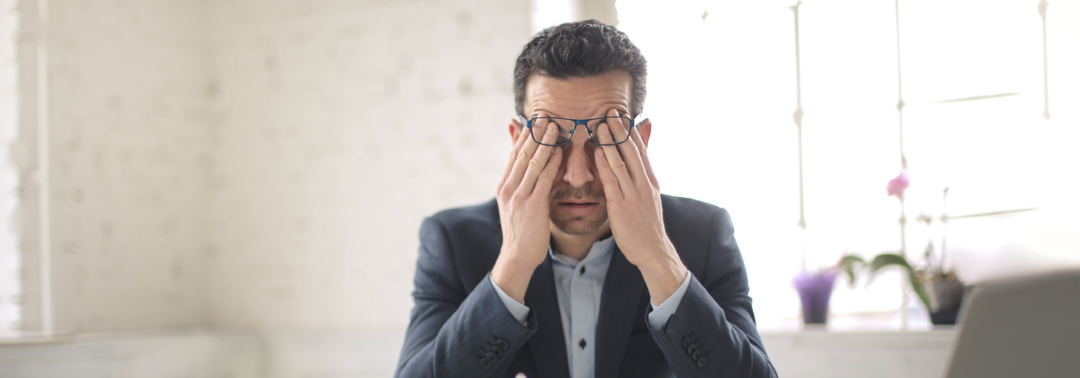Depression is the number one cause of disability worldwide, according to the World Health Organization. More than five percent of men will have an episode of major depression this year. And there is considerable overlap between depression and substance use disorders, especially for men, who tend to self-medicate depressive symptoms with drugs and alcohol rather than seek help. In some cases, depression can become so severe that you can’t get out of bed, much less go to work or do much of anything else. However, most people with depression have mild to moderate depression, which means they still go to work and meet their regular obligations, only now everything is much harder. If you have mild or moderate depression, here are some tips for dealing with it at work.
Get professional help.
The first thing is to get professional help. Talk to your doctor or therapist. Men are especially reluctant to do this, since we’re all taught from a young age to be tough and self-reliant but asking for help is the smart thing to do. Depression is treatable and it’s just silly to endure it when you don’t have to. Also, depression is not to be taken lightly, as men die by suicide at twice the rate as women.
Take very small bites.
When you’re depressed, you’re probably severely lacking in energy and motivation. Thinking about the entire day ahead and everything you have to can feel overwhelming. Instead, just focus on the next small step. If you have to write a proposal, for example, don’t think about the whole project. Just think about the smallest possible step, perhaps opening a Word document. After that, think about the next step, perhaps making a list of resources you need, and so on.
Prioritize.
When you’re depressed, you just have to accept that you won’t have the energy, motivation, or focus to do everything you want to do. It’s crucial to identify your top priorities and stick to those. This is good practice in general but it’s especially important when you’re cognitive resources are limited.
Use your time wisely.
Even when you’re depressed, some times of day are more productive than others. Figure out when you have the most energy and focus and schedule your high priority items during those times. For many people, that’s in the morning before lunch, but everyone is different. Figure out what works for you.
Take care of yourself.
It’s always important to take care of yourself and it’s even more important when you’re depressed. Make sure you’re getting plenty of sleep. Try to exercise every day, even if it’s just a short walk. Try to eat a healthy diet and spend time with people you care about. You may have to accept that work can’t be your top priority when you’re depressed. Stress tends to worsen depression, so take something off your plate if you can. Most importantly, go easy on yourself. Depression is not your fault and it makes everything harder.
Depression is just one of many possible co-occurring mental health issues that can complicate addiction recovery. A strong recovery from addiction means treating these issues, which often drive addictive behavior. At Tree House Recovery of Portland, Oregon, we help men with substance use disorders by treating them on the physical, mental, and emotional levels. Call us today at (503) 850-2474 to learn how our individualized, holistic treatment program can help you overcome addiction.




